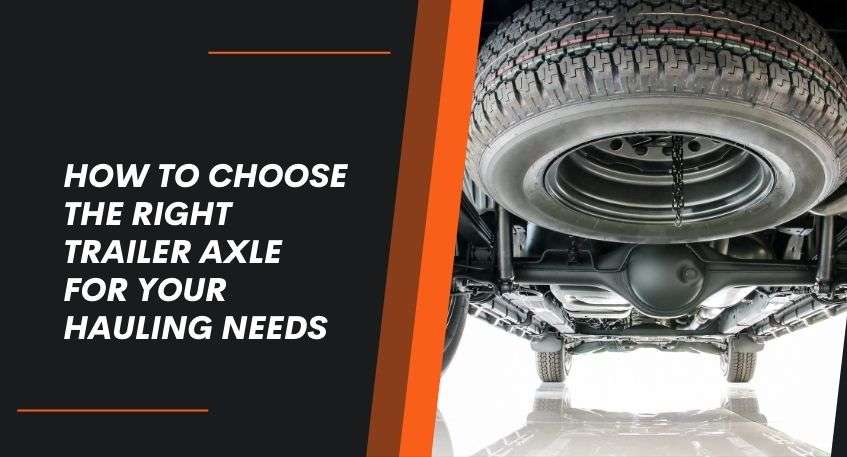

May 22,2023
Choosing the right trailer axle is crucial for ensuring safe and efficient hauling. A trailer axle plays a significant role in supporting the weight of the trailer and its cargo. To make an informed decision, several factors need to be considered. This guide will walk you through the essential considerations to help you select the right trailer axle for your hauling needs.
Trailer axles come in various types, each with its own characteristics and applications. It's important to familiarize yourself with these axle types to make an informed choice. Additionally, axle capacities and load ratings differ based on the axle type and design.
Start by determining the maximum weight capacity required for your trailer. Consider the heaviest load you will be hauling and ensure the chosen axle can handle that weight. Analyze the types of loads you will be transporting as well. Different loads may require specific axle configurations or features. Furthermore, trailer dimensions and weight distribution should be taken into account to ensure stability and proper weight distribution.
Understanding axle load ratings and weight distribution is essential. Axle load ratings indicate the maximum weight a particular axle can support safely. It's important to calculate the required axle capacity based on your load requirements, ensuring that the chosen axle has an adequate load rating. Moreover, consider safety margins and future needs. It's advisable to choose an axle with a slightly higher load rating than your immediate requirements to accommodate potential growth or changes in your hauling needs.
Several factors can influence your choice of trailer axle. Suspension systems and ride quality are crucial aspects to consider. Consider the terrain and road conditions in which the trailer will be operating. If you anticipate rough terrains or uneven surfaces, you may need an axle with better suspension capabilities. Additionally, the frequency and distance of hauling trips can impact axle selection. Frequent or long-distance hauling may require more robust and durable axle systems.
Regular maintenance is vital to ensure optimal performance and longevity of your trailer axle. Conduct routine inspections to identify any signs of wear or damage. Lubricate the axles as recommended by the manufacturer to minimize friction and prevent premature wear. Address common axle issues promptly and follow proper troubleshooting tips to resolve any problems that may arise.
When in doubt, seek guidance from trailer manufacturers or dealers. They possess extensive knowledge and experience in matching trailer axles to specific hauling needs. If you have unique or custom requirements, consulting with axle specialists can provide valuable insights and recommendations.
Choosing the right trailer axle is crucial for safe and efficient hauling. Consider factors such as weight capacity, load requirements, axle types, sizing, and load ratings. Factors like suspension systems, terrain, and maintenance requirements should also be taken into account. Seek advice from experts to ensure you make an informed decision. By considering safety, performance, and longevity, you can select the ideal trailer axle that meets your individual hauling needs.